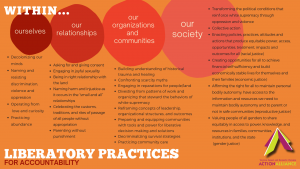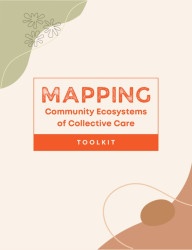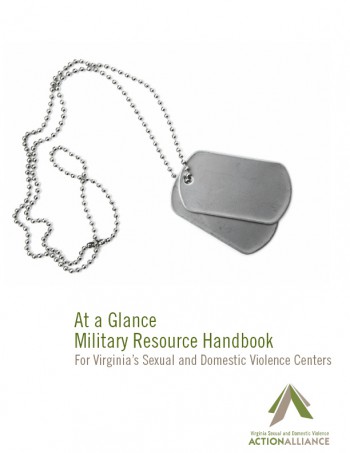Resources Library: Advocates
Start a Search:
Liberatory Practices for Accountability Across the Social Ecological Model

What does accountability look like without punishment, isolation, and shaming?
What are the shifts we can make in ourselves, our relationships, communities, and as a society to move from punishment to true accountability, which builds connection and encourages growth?
This infographic, created for the Action Alliance webinar series, “Reimagining Our Legacy: Transforming from Criminalization to Liberation”, seeks to offer a few ways in which we can practice methods of accountability that liberate us from punishment and harm and move us toward healing and connection.
Lifetime Spiral of Gender Violence
Illustration describing the violence that may happen throughout the lives of Asian and Pacific Islander women during the life stages of infancy, childhood, adolescence, young adulthood, adulthood, and later life. Included are translated versions of the Lifetime Spiral in Chinese, Farsi, Korean, Punjabi, Tagalog and Vietnamese. All translated versions have the English version on the reverse page.
Additional resources can be found at https://www.api-gbv.org/about-gbv/our-analysis/lifetime-spiral/.
Mapping Community Ecosystems of Collective Care

By Shannon Perez-Darby and Andrea J. Ritchie
Since the 2020 Uprisings, there has been an explosion of interest, activity, and organizing around community-based approaches to building safer communities free from the violence of policing. Throughout this period, Interrupting Criminalization has been supporting these efforts by sharing expertise built over decades of organizing for and practicing transformative justice-based approaches to building liberatory communities with resources, toolkits, webinars, podcasts, skill-shares, trainings, cohorts, and learning and practice spaces.
In many of these spaces, and within broader campaigns and movements to divest from policing and invest in the building blocks for safer communities, critical questions and conundrums began to surface from organizers. At the core of these concerns are the questions of:
- How do we build shared definitions, values, and practices of safety across neighborhoods and organizations working within a city?
- How do we weave our small, often relatively new community safety projects — ranging from mutual aid formations, to transformative justice practitioners, to neighborhood defense organizations, to community fridges, to violence interruption and crisis response teams operating at hyper-local levels — into robust, palpable neighborhood and city-wide ecosystems of care that people can feel, trust, and rely on more fully to collectively build greater safety and wellbeing?
- How do we relate to state institutions and resources as we are doing so?
This toolkit offers some resources, responses, and additional questions to consider based on our work and practice spaces.
In particular, this toolkit emerges from the work of our Creating Community Ecosystems of Collective Care Cohort, which launched in March of 2022 and featured over a dozen organizations working in community safety coalitions in Miami, Durham, NC, Seattle, Milwaukee, Phoenix, Minneapolis, and Atlanta. This cohort consisted of groups who were already engaged in this work; it was designed as a virtual space for organizers to learn, practice, and strategize together toward building more robust community ecosystems of care at the neighborhood and city-wide levels.
In addition to breaking isolation, cross-pollinating across communities, and creating a virtual community of practice, the goal was to collectively create resources to support communities beyond the cohort who are grappling with similar questions. This toolkit is that vision come to life.
As communities face increased policing, criminalization, and organized abandonment; mounting state violence, repression, and authoritarianism; escalating white supremacist, homophobic, and transphobic violence; and climate collapse; building skilled, coordinated, expansive, and robust ecosystems of collective care is only becoming more and more essential to collective survival.
Maternal Mortality Review – Each Death Matters
Virginia’s multidisciplinary Maternal Mortality Review Team reviewed nearly 400 cases of pregnancy-associated death occurring between 1999 and 2007. This brief article was published by the National Women's Health Network and authored by Victoria M. Kavanaugh, RN, PhD, Maternal Mortality Review Team Coordinator with the Virginia Department of Health, Office of the Chief Medical Examiner. In the article, Dr. Kavanaugh summaries Virginia data and emphasizes the need for maternal mortality reviews as a means to develop recommendations for interventions and prevention strategies to prevent future deaths. These recommendations apply to a wide array of fields, including prenatal health care, social work, psychiatry, emergency care, dietary services, health care, and advocacy.
Military Resource Handbook for Virginia’s Sexual and Domestic Violence Centers

A comprehensive handbook for Sexual and Domestic Violence Agencies who may be working with victims/survivors serving in the military. Includes Department of Defense policies on sexual and domestic violence, reporting procedures, tips for collaboration between civilian and military organizations, sample safety plans, and additional resources.
Published by Virginia Sexual & Domestic VIolence Action Alliance.
January, 2008.
60 pages.

